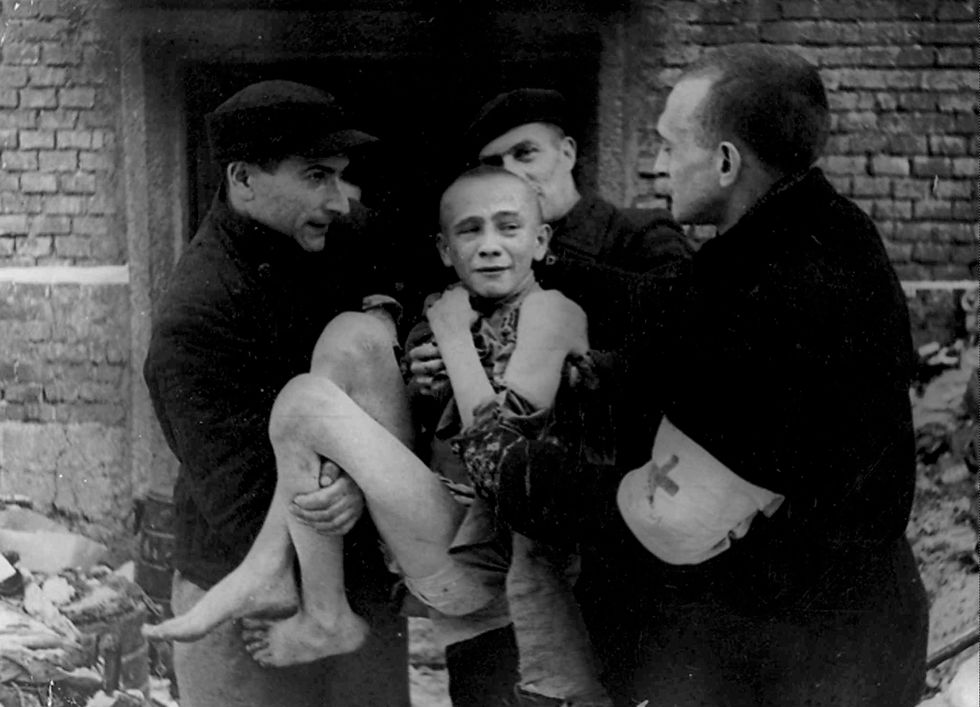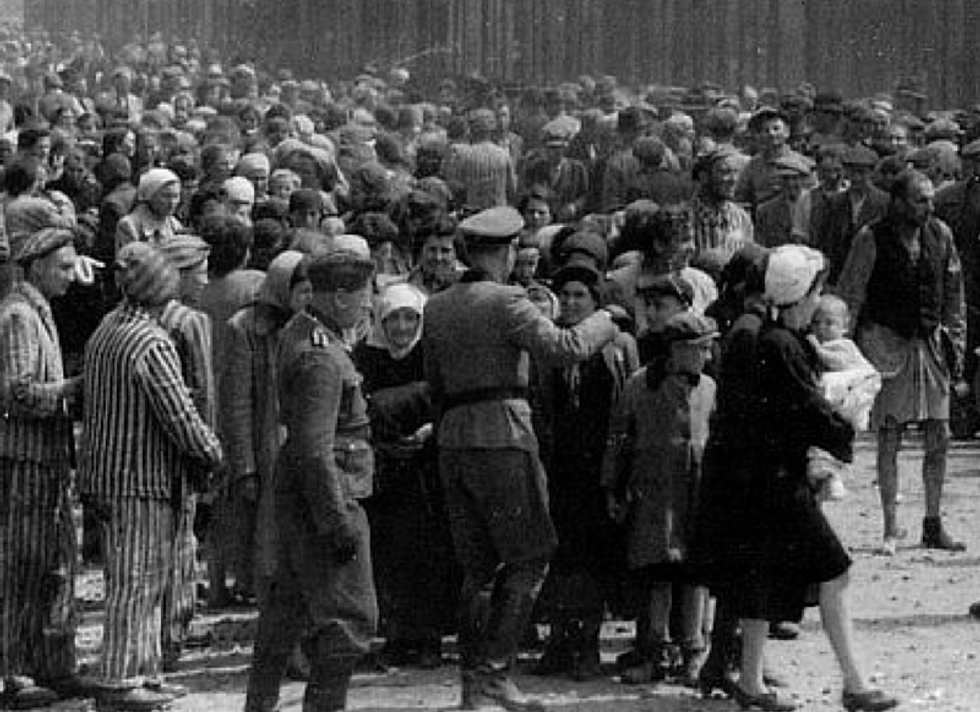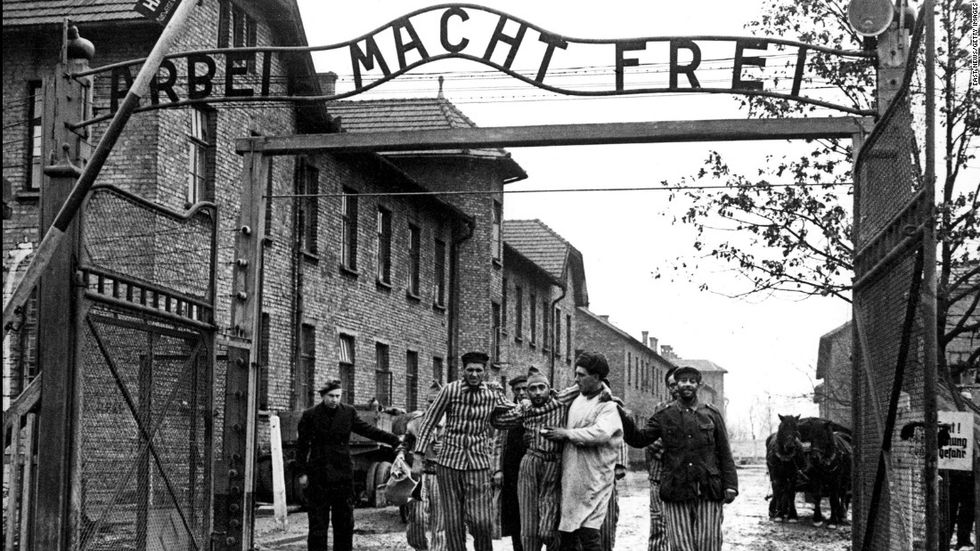I am obsessed with the Holocaust.
Since I was in high school I always felt drawn to a specific historical time period. That's right, I was drawn into the history of the Holocaust. I always felt like it wasn't just a time of mass genocide, but a time where one man had entire continents following his word because he was a so-called genius. I say genius because he was able to get, not only Jews, but Dutch, Poles, Czechs, and war prisoners to be forced into work camps or death.
I was joking around on Ancestry.com one day and traced my ancestry back so far I learned my great-grandfather's brother was a Nazi and my mom's last name is on the Auschwitz memorial. I have a strong family connection to this time period. So it made sense I was strongly pulled to this time period. My dad's side is strongly German and my mom's side is strongly Polish. I kept making jokes about a Nazi having a baby with a captive Pole and now I'm certain I couldn't be too far off. I'm like a walking encyclopedia of the Holocaust. You could be talking about it and I'd pop up out of nowhere and go "but did you know...?"
A lot of people think it's strange to be obsessed with the Holocaust, many even try and steer clear of it when it comes into conversation and I am around. I could talk your ear off about it for hours and not be bored because I find it fascinating. I have watched every movie, seen every documentary, and read many journals from Nazis and people in the concentration camps.
I think the one thing people need to understand about the Holocaust is to not be so close-minded about it. It was a time of great pain and suffering and a time of liberation and evilness. Everyone hears about Auschwitz and Auschwitz II, but that wasn't the biggest death camp until the middle of the war. When Auschwitz first opened its doors in 1940, only 200,000 prisoners were killed there. Don't get me wrong, that's a huge number, but that was in a couple years.
One day, word came back from the SS headquarters that demanded Auschwitz up their numbers from 200,000 to over 1 million to help with the fact they were controlling more continents. But Dachau, the very first camp opened, killed over 30,000 prisoners. Did you know 3% of the SS soldiers were women? They helped out in camps and duties and were in charge of a women's section.
I bet you hear about how Hitler wanted the perfect race, blonde hair and blue eyes, and that's why the Holocaust started. They were not after this at all. They were after a world without Jews because they saw them as an alien race. There were over 26 concentration camps and do you know what the screwed up part was? Polish military sent planes to take photographs of a chemical plant in their southern territories and in those pictures they saw Auschwitz and didn't do anything about it because the photos were never examined during the war.
Here are some things you probably didn't know from your history classes:
1: If you were sick, cases of typhus, typhoid fever, tuberculosis, and even mentally ill prisoners were shot and killed as soon as the Nazis told them to leave the sick wing. Some days the prisoners working as nurses were told "everyone must go," and the Nazi would mark and entire bunk with a check and that bunk, sometime with as many as 25 people per bunk, would be sentenced to death.
2: Most Germans had no clue what was happening in their own country. The outside world knew what was going on but not to the extent that it happened. Many Germans believed they were being "relocated" and were going to find a new home elsewhere. This was after they were shoved into ghettos and small houses, but i'll sip my tea on that one.
3: If you were at a camp where there was a trained doctor, like Auschwitz, you were experimented on for their own good. The most fascinating and cruel one I learned about what the experimentation on twins to see what made them identical. You can read about it here : https://www.thoughtco.com/mengeles-children-twins-of-auschwitz-1779486 . Or the sterilization of women that you can read here: http://auschwitz.org/en/history/medical-experiments/carl-clauberg/.
4: They had mobile killing units that would follow the military into Soviet country to kill civilians on the spot. It was more, 'kill now, think later,' type of mindsets with the SS soldiers in that unit.
5: There were a lot of uprisings at the camps. At Sobibor, a group of prisoners, with the help of a Russian war captive, caused a large-scale plan to get out. Now, Sobibor didn't have highly electric fences that kill on contact or anything like that. They had a barbed wire fence and that was really it until one day they decided, "yes, mine field, that'll work." They were told by another prisoner, who was sent to Sobibor on a train with a thousand other prisoners from another camp, about a "liquidation" happening because the allied soldiers were gaining on them. All the people who arrived on this cart were shot instantly once the door opened, but a letter slipped through that told the current residents what was happening. They killed 15 Nazis in the camp, cut the phone lines so no help could be called in, and they went for it as soon as another Nazi saw the dead bodies of his comrades. Out of 300 escapees, 200 made it past the mine field and into the forest, now 150 were captured and sent back to camps and 50 made it to freedom. It was the largest amount of escapees that made it out of the camps during the war. Read more about it here: https://www.ushmm.org/research/the-center-for-advanced-holocaust-studies/miles-lerman-center-for-the-study-of-jewish-resistance/medals-of-resistance-award/sobibor-uprising.
6: You had to fake it till you made it. When you got off the train at some camps where slave labor was a thing, you were asked if you had a trade. Only a select few would be selected to work, the rest...you know their fate. Most people made things up to be saved, trades they had no idea on what they were doing. This worked out for a bit until the guards realized you had no clue what you were doing or were working too slow and you were sentenced to death.
7: The Nazis were greedy. Not only did they make prisoners sort through the coats, luggage, and shoes of the people sent to the chambers, they got first pick on what they wanted to keep. If they liked a certain coat, they got it tailored to fit them. Someone wants a pair of shoes, the cobbler will stretch them to fit. They burned personal pictures, hair, and whatever was not used was sent back to Germany and other supporting countries to use for their own good.
8: Last but not least, did you know camps had brothels? Not a typo, they really did have brothels as incentives for working men to work longer and harder. But not many men used it for sex, but rather to hold a women for the first time in years. Here: https://en.wikipedia.org/wiki/German_camp_brothels_in_World_War_II






















